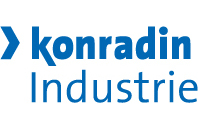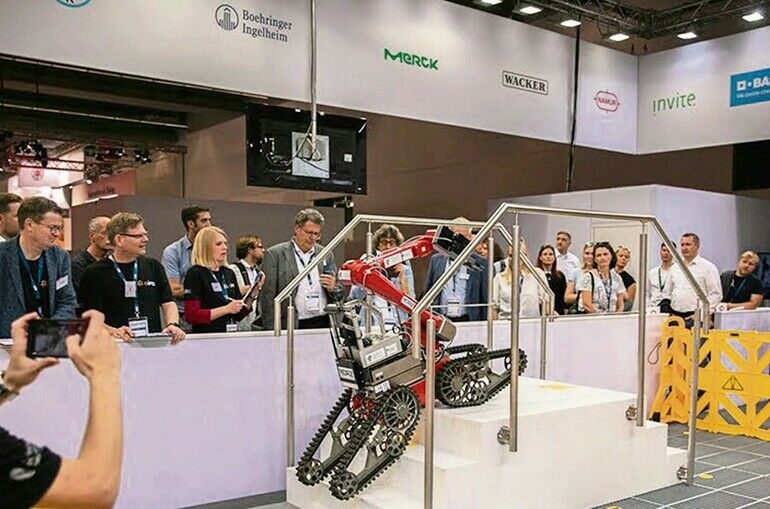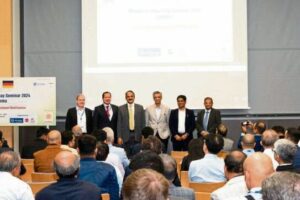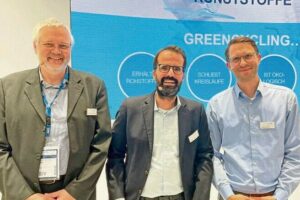The second Advanced Industrial Robotic Applications (AIRA) Challenge will take place at Achema. The AIRA Challenge will bring together some of most advanced mobile robots in the world with the goal of developing new robotics technologies that can execute tasks remotely in chemical processing plants. At the previous AIRA Challenge, held at Achema in 2022, the goal was to provide proof-of-concepts for fully autonomous mobile robots. However, for the 2024 challenge, the focus is moving beyond full automation to a more dynamic and communicative model for robots. “Making robots fully autonomous takes enormous effort to program everything, so we wanted to expand the business case for autonomous robots. Now, we’re not just looking for an autonomous robot, but one that can communicate its needs to operators,” explains Carl-Helmut Coulon, head of future manufacturing concepts at Invite GmbH, the organizer of the AIRA Challenge.
Giving robots the ability to “call for help” when an unknown situation is encountered helps to lower the programming barrier for automaticity, says Coulon. “You can program in the easiest 80% of the solution, and then any situation that the robot cannot handle by itself can be communicated to and dealt with by the operator,” he explains. While it may seem like reducing the amount of automation in a robot might decrease its complexity and capabilities, there are many benefits to the teleoperation approach that AIRA is looking for. “We want to upgrade the robots to enable remote control of the robot from a distance with no line of sight, and also add virtual reality to navigate. This gives the robot flexibility to open and close doors, dispose of waste, inspect closed cabinets and take material samples,” says Coulon.
He believes that the flexibility enabled by teleoperation will increase the business use cases for mobile robots in chemical plants and warehouses and encourage their adoption in industry. In theory, operators could take control of a robot at a plant thousands of kilometers away to respond to an alarm or evaluate the severity of a situation and decide whether or not in-person intervention is required.
“We see teleoperation as an extension of classical autonomous mobile operations. At the challenge, we expect to see mobile robotics capabilities that have never been seen before,” adds Coulon. The 2024 AIRA Challenge finalists, listed below, were selected by a judging group consisting of experts from BASF, Bayer, Wacker and Boehringer Ingelheim.
EngRoTec Group
ETH Zurich’s Robotic
Systems Lab
Forschungzentrum für
Informatik
Reply Roboverse
Team TruPhysics/United Robotics Group
AIRA Robotics Challenge
Hall 11.1, Stand A5









